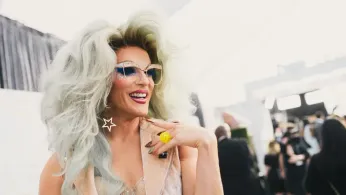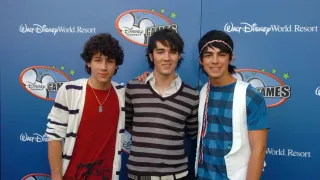
4 hours ago
Drag Race Queens Willam and Mistress Isabelle Brooks Ignite Viral Feud Across Social Media
READ TIME: 3 MIN.
The Drag Race fandom has been abuzz this week as a feud between two of the show’s most recognizable alumni, Willam and Mistress Isabelle Brooks, spilled from podcasts and TikTok into a full-scale public exchange. The dispute began simmering in early July 2025, when Willam made a series of pointed remarks about Mistress Isabelle Brooks, alleging untrustworthiness and social friction within their shared circles, specifically referencing her removal from a season 15 group chat during Christmas.
In a TikTok that quickly made the rounds, Willam claimed, “The girls don’t like her. There’s a reason she was kicked out of the group chat for season 15. She’s a bully, you can’t trust her. It comes down to real world stuff too. She was kicked out on Christmas.” The comments prompted heated debate among fans and were soon followed by a direct response from Mistress Isabelle Brooks herself.
On July 24, Mistress Isabelle Brooks released a now-viral 15-minute YouTube video titled “The Beat Up Feat. Willam (Confronting My BIGGEST FAN!),” in which she addressed Willam’s criticisms head-on. Mistress opened the video by acknowledging the public’s interest in their dynamic: “I never realised the power I had over him til many of you brought it to my attention. So, I’m going to do you a favour Willam – I’m going to give you the attention you’ve been craving.” She accused Willam of lying repeatedly on podcasts and social media, stating, “Willam, you have sat there and lied on my name time, after time, after time. I never gave you a response, because it’s f*cking hilarious.” She further alleged that Willam had asked to collaborate on multiple occasions, contradicting Willam’s public statements.
Willam swiftly responded with a YouTube video of her own as part of her “Willam Wednesday” series, escalating the feud further. In her response, Willam accused Mistress of performative drama, asserting, “Mistress thinks that volume equals correctness – it doesn’t.” She detailed what she described as Mistress’s attempts to work with her behind the scenes, even as the public dispute played out. Willam noted, “We have the same manager – she was trying to work with me while her video was going up, but I was overseas.” The exchange has been described by fans as reminiscent of high-profile pop culture feuds, drawing comparisons to rap battles in scope and impact.
The feud has divided the Drag Race fandom, with social media platforms like Twitter (now X) and Instagram flooded with commentary, memes, and threads analyzing the queens’ words and actions. Some viewers have expressed disappointment at the public airing of personal grievances, raising concerns about the impact of such drama on the perception of drag culture and the wider LGBTQ+ community. Others argue that feuds and shade are part of the art form’s history, citing the tradition of verbal sparring as both entertainment and a reflection of real-life tensions within queer spaces.
Prominent voices within the drag community have weighed in, with some urging the queens to use their platforms for unity and advocacy rather than personal conflict. Still, the feud has undeniably kept both stars at the center of queer media attention, with their videos racking up hundreds of thousands of views within days of release.
Drag feuds, especially when they reach viral proportions, often prompt reflection on the role of public conflict in LGBTQ+ representation. While some argue that these disputes risk reinforcing negative stereotypes about queer communities, others highlight the importance of authenticity and open dialogue—even when messy. For many, the Willam-Mistress feud underscores the diversity of personalities and perspectives within drag, as well as the complexities of fame and platform in the digital age.
As Willam and Mistress Isabelle Brooks continue to leverage their social media presence and respond to one another, fans and fellow performers alike are watching closely to see whether reconciliation, escalation, or creative collaboration might emerge from the ashes of their public spat.






